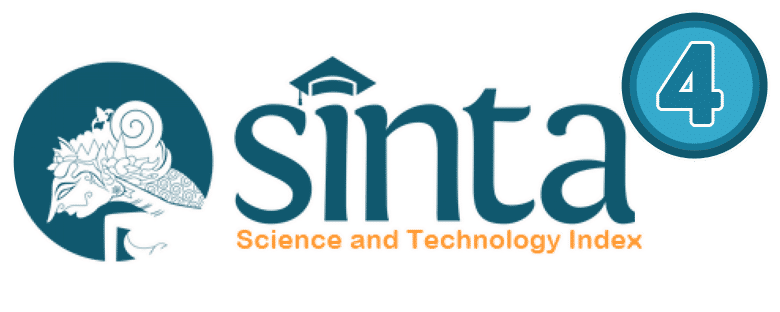The Influence of Learning Motivation and Learning Understanding on Student’s Cumulative Grade Point Average
DOI:
https://doi.org/10.24114/icp.v5i2.65155Keywords:
Student Motivation, Learning Understanding, GPAAbstract
Indonesia is still struggling to become a developed country. In the process, it is necessary to maximize various aspects, both natural resources and human resources (HR). The purpose of this study is to see whether learning motivation and understanding of learning affect the Student Achievement Index which will support their future career. Students that learning at university who will later have a career and become HR are expected to be able to make Indonesia a developed country driven by the economy. While studying at university, intention and motivation play an important role. Because when someone has strong motivation, he can achieve his targets and also have a good plan for his future career. Previous research has also proven that motivation is an important part of learning understanding. Motivation is also part of emotional intelligence (EQ), where emotional intelligence is also an important part of learning besides intellectual intelligence (IQ). The hypothesis of this study is that students who have good motivation tend to achieve good learning understanding and also get a good GPA and help plan their future careers. The sample of this study was students of the Sriwijaya State Polytechnic, Bukit class, Sriwijaya State Polytechnic, totaling 65 people. This research method uses regression. Student motivation, learning understanding and GPA were measured and collect by a questionnaire with a Lickert scale. Then, the data was analyzed using SPSS software. The result is that student motivation has a influence on student learning understanding and their GPA.References
Anggresta, V. 2015. “Analisis Faktor - Faktor yang Mempengaruhi Prestasi Belajar Mahasiswa Fakultas Ekonomi Universitas Negeri Padang”. Journal of Economic and Economic Education, 4(1), 19-29. DOI:10.22202/economica.2015.v4.i1.325.
Dewi, P. S., dan Septa, H. W. 2019. "Peningkatan Kemampuan Pemecahan Masalah dan Disposisi Matematis Siswa dengan Pembelajaran Berbasis Masalah". Mathema: Jurnal Pendidikan Matematika, 1(1), 31-39.
Ghozali, I. 2018. Aplikasi Analisis Multivariate dengan Program IBM SPSS 25. Badan Penerbit Universitas Diponegoro: Semarang. ISBN: 979-704-015-1.
Goleman, D. (1995). Emotional Inteligence: Why it can matter more than IQ. New York: Bantam Books.
Goleman, D. (1996). Emotional intelligence. Why it matters more than IQ. Learning, 24(6), 49–50.
Goleman, D. (2001). Emotional Intellegence: Kecerdasan Emosional Mengapa EI Lebih
Penting Daripada IQ. Jakarta: PT Gramedia Pustaka Utama.
Higgs, M. and Dulewicz, V. (1999). Making Sense of Emotional Intelligence. Berkshire:NFER-Nelson Publishing Company.
Hytti, U., Stenholm, P. and Heinonen J. (2010). Perceived learning outcomes in entrepreneurship education. The impact of student motivation and team behaviour. Leeds. Emerald Group Publishing Limited. 52(8), 587-606. DOI 10.1108/00400911011088935.
Holahan, C. K. and Sears, R. R. (1995). The Gifted Group In Later Maturity. Stanford: Stanford University Press.
Krapp, A., Hidi, S. and Renninger, K.A. (1992), “Interest, learning and development”, in Renninger, K.A., Hidi, S. and Krapp, A. (Eds), The Role of Interest in Learning and Development, Erlbaum, Hillsdale, NJ, pp. 3-25.
Nickerson, R.S. (1985). Understanding. American Journal of Education, 93(2), 201-239.
Peltonen, M. and Ruohotie, P. (1992), Oppimismotivaatio. Teoriaa, tutkimuksia ja esimerkkeja¨ oppimishalukkuudesta, Aavaranta-sarja No. 29, Otava, Helsinki.
Rahmawati, R., Amah, A. M., Jerina, A. V., & Amayasari, M. R. (2022). Motivational Factors Affecting Undergraduate Students’ Reading Interest. IJET (Indonesian Journal of English Teaching), 11(1), 81–87. https://doi.org/10.15642/ijet2.2022.11.1.81-87
Ruohotie, P. (1982), Aikuisen opiskelumotivaatio, Tampereen yliopiston Ha¨meenlinnan opettajankoulutuslaitoksen julkaisuja No. 6.
Sabariah. (2013). Hubungan Kecerdasan Emosi Dengan Penpemahaman Akademik Dalam Kalangan Pelajar-Pelajar Kolej Vokasional Kementerian Pelajaran Malaysia (KVKPM). Universiti Tun Hussein Onn Malaysia. Malaysia.
Seikkula-Leino, J. (2002), Miten oppilaat oppivat vieraskielisessa¨ opetuksessa? Oppilaiden suoriutumistasot, itsetunto ja motivaatio vieraskielisessa¨ opetuksessa, Publication Series C:190, Teacher Training School, Painosalama, Turku University, Turku.
Sprinthall, A.S., Sprinthall, R.C. and Oja, S.O. (1994), Educational Psychology. A Developmental Approach, 6th ed., Addison-Wesley, Reading, MA.
Syafi'i, A., Marfiyanto, T., dan Rodiyah, S. K. 2018. ”Studi Tentang Prestasi Belajar Siswa dalam Berbagai Aspek dan Faktor yang Mempengaruhi”. Jurnal Komunikasi Pendidikan, 2(2), 115-123. DOI: https://doi.org/10.32585/jkp.v2i2.114 .
Widarjono, A. (2019). Statistika Terapan dengan Excel dan SPSS (ed2). Yogyakarta:UPP STIM YKPN.
Widyahening, C. E. (2018). Penggunaan Teknik pembelajaran fishbone diagram dalam meningkatkan keterampilan membaca siswa. Dipetik 06 26, 2018, dari Jurnal Komunikasi Pendidikan: http://journal.univetbantara.ac.id/index.php/komdik/article/view/59.
Wahab, R. (2015). Psikologi Belajar.Jakarta: PT RajaGrafindo Persada.
Wechsler, D. (1940). The Measurement of Adult Intelligence. The Journal of Nervous and Mental Disease 91(4):p 548, April 1940.
Yahaya, A. Mo Lee, G, dkk. (2014). Hubungan antara Dimensi Kecerdasan Emosi dengan Pencapaian Akademik Pelajar. Malaysia: Universiti Teknologi Mara (Melaka) Press. DOI:
https://doi.org/10.11113/sh.v2n4.467.
Downloads
Published
How to Cite
Issue
Section
License
Copyright (c) 2025 Rizal Afif A. Napitupulu, Raras Risia Yogasnumurti, Dika Setiagraha

This work is licensed under a Creative Commons Attribution-ShareAlike 4.0 International License.
Authors who publish with this journal agree to the following terms:
- Authors retain copyright and grant the journal right of first publication with the work simultaneously licensed under a Creative Commons Attribution License that allows others to share the work with an acknowledgement of the work's authorship and initial publication in this journal.
- Authors are able to enter into separate, additional contractual arrangements for the non-exclusive distribution of the journal's published version of the work (e.g., post it to an institutional repository or publish it in a book), with an acknowledgement of its initial publication in this journal.
- Authors are permitted and encouraged to post their work online (e.g., in institutional repositories or on their website) prior to and during the submission process, as it can lead to productive exchanges, as well as earlier and greater citation of published work.







